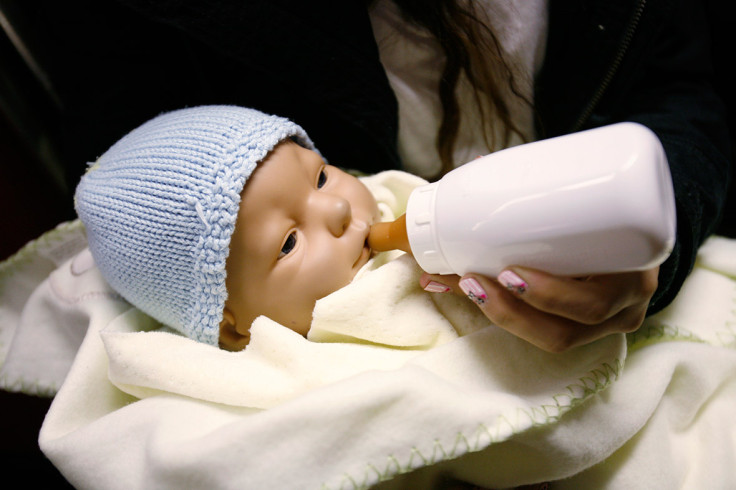Sex education: 'Virtual babies' increase likelihood of teenage pregnancy in Australia, study shows
Baby simulator meant to deter teens from having children is found to have opposite effect, says The Lancet.

Girls who have been given 'virtual babies' as part of a schools sex-education programme to show the pressures of parenthood are falling pregnant more than those who do not, an Australian study has found.
The study of Australian schools, as published in the Lancet, found that 17% of girls given the the dolls to simulate the experience of caring for an infant became pregnant by the age of 20 compared with the 11% who did not use them.
The baby-simulator dolls were given to teenagers as part of a sex-education Virtual Infant Parenting programme that started in 2003 in 57 schools in Western Australia.
Intended to cut teen pregnancy rates by showing the actual experience of having a young child, the lifelike infants cry and wail like real babies, providing a realistic experience of what it is like to care for a newborn.
The programmes were first used in the US, and similar schemes are in place in 89 other countries. Nearly 3,000 Western Australian schoolgirls, aged 13 to 15, took part in the study by the Telethon Kids Institute.
Those who took part in the VIP programme were also found to be less likely to have abortions if they became pregnant, with 54 having an abortion in comparison to the 60% who had not used a virtual baby.
Lead Researcher Dr Sally Brinkman said the study shows that the simulators failed to reduce the likelihood of teenage pregnancy: "In fact, the risk of pregnancy is actually increased compared with girls who didn't take part in the intervention."
She said the dolls "are likely to be an ineffective use of public resources for pregnancy prevention".
© Copyright IBTimes 2025. All rights reserved.




















